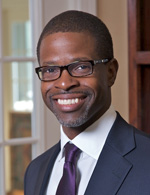Measuring one’s effort is certainly a critical component of any worthwhile endeavor. In many arenas, this is easy to do. You just look at the data and observe the facts. Pitchers are ranked, in part, according to their earned run average. Golfers count their strokes to determine whether they should brag or hang their heads after a round of nine or eighteen holes. Politicians tally votes.
What about churches and church leaders? God clearly has high expectations. In his letter to the Colossians, Paul says we should proclaim Christ, admonish and teach everyone so that we may present everyone perfect in Christ. Jesus says that everyone connected to him is expected to bear fruit (John 15:1-4). But how do we measure this? When do we measure this?
Our congregation is in the middle of planning for ministry and mission. We are chipping away at our mortgage to free up resources and developing a strategy to become a missional church. People who do this kind of planning often put an emphasis on being able to measure the goals we set. I agree. The church is often sincere, but vague. We confess, but often not about anything in particular. We make petitions in our prayers, but we shy away from expressing our deepest hopes with boldness and clarity.
One generation of clergy learned to use a simple formula for measuring ministry: buildings, budgets and bodies. When all three of these quantifiable variables increase, it has been a successful year. There is truth to this claim. A church grows when it takes seriously the call to make disciples and teach stewardship.
But beyond these obvious tangible signs of growth, I am learning to pay more attention to children. They are candid and honest and will tell us exactly what they think about the church whether we like it or not.
This summer I invited my eleven year old niece to visit with us for about a week and half. The night before my family drove her back to Winston-Salem, she became a little afraid about leaving home and nervous that my five year old son would talk her to death. She had never been away from home for this long and didn’t know what to expect. My wife and I reassured her that everything would be fine and the next morning we were on the road.
We enrolled her in our church’s summer camp, which is in its first year of operation after hiring all new staff and redesigning the programs. I had no idea what to expect.
A few days later, as my family gathered for evening prayer, we began our routine of giving everyone an opportunity to give thanks. That night I listened as my niece overflowed with gratitude for a family who loves her, being able to go to church and having a camp she loved to attend.
I got a little choked up as I thought about how this young girl timidly left home uncertain of what she would find because I knew that after prayer she was going to her room to finish a crocheting project, something she learned how to do that afternoon in summer camp. She’s leaving in a few days, but it looks like the camp we hoped would make a positive difference in the lives of young people has done exactly that for at least one bright-eyed girl with the courage to leave home for a little while.
I don’t know if this is what the experts mean by measurable, but I am inclined to believe that one way we can measure ministry this summer is by the number of children who are saying their prayers tonight and thanking God for the ministry of our church.
Prince Raney Rivers is pastor of United Metropolitan Missionary Baptist Church in Winston-Salem, North Carolina.







